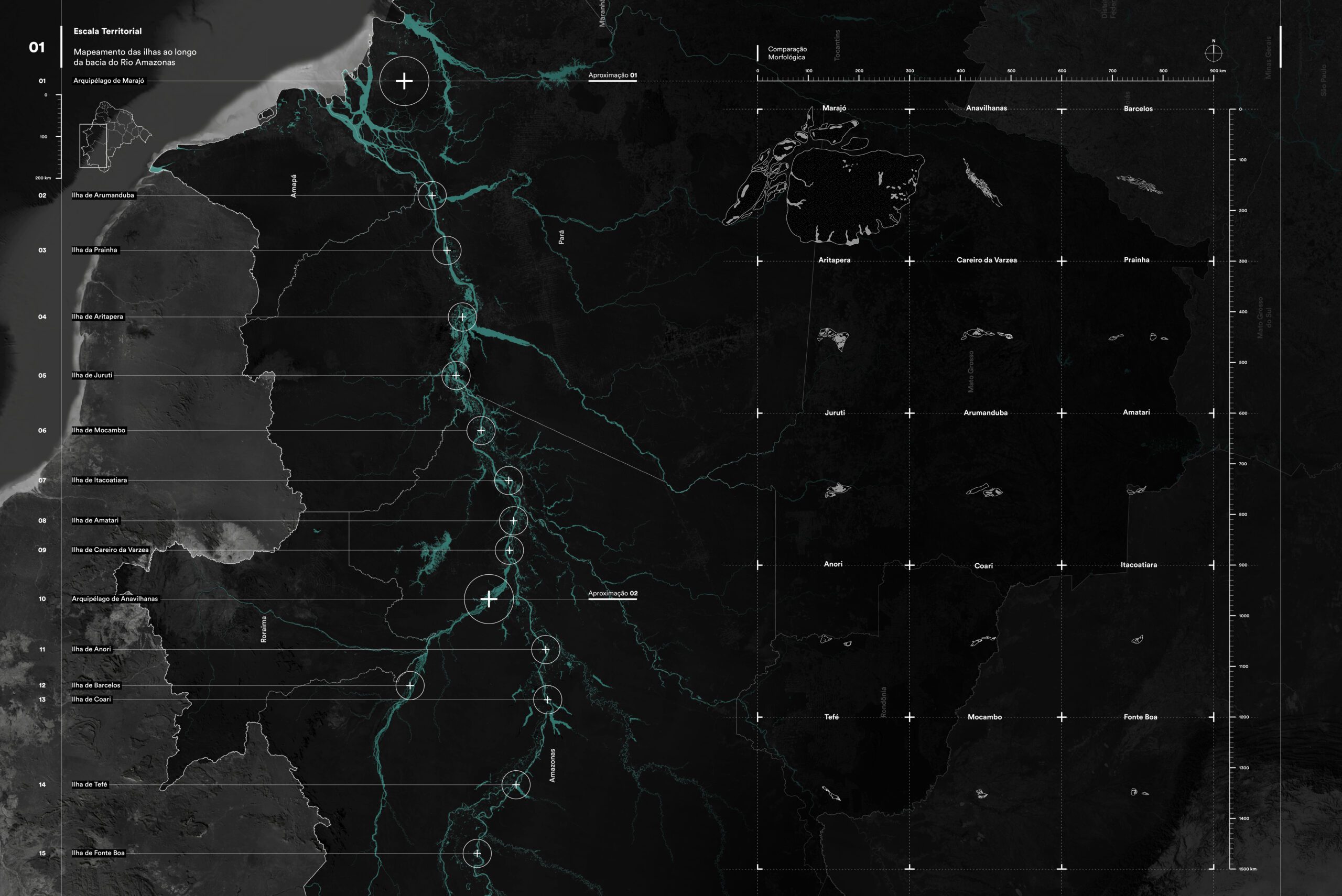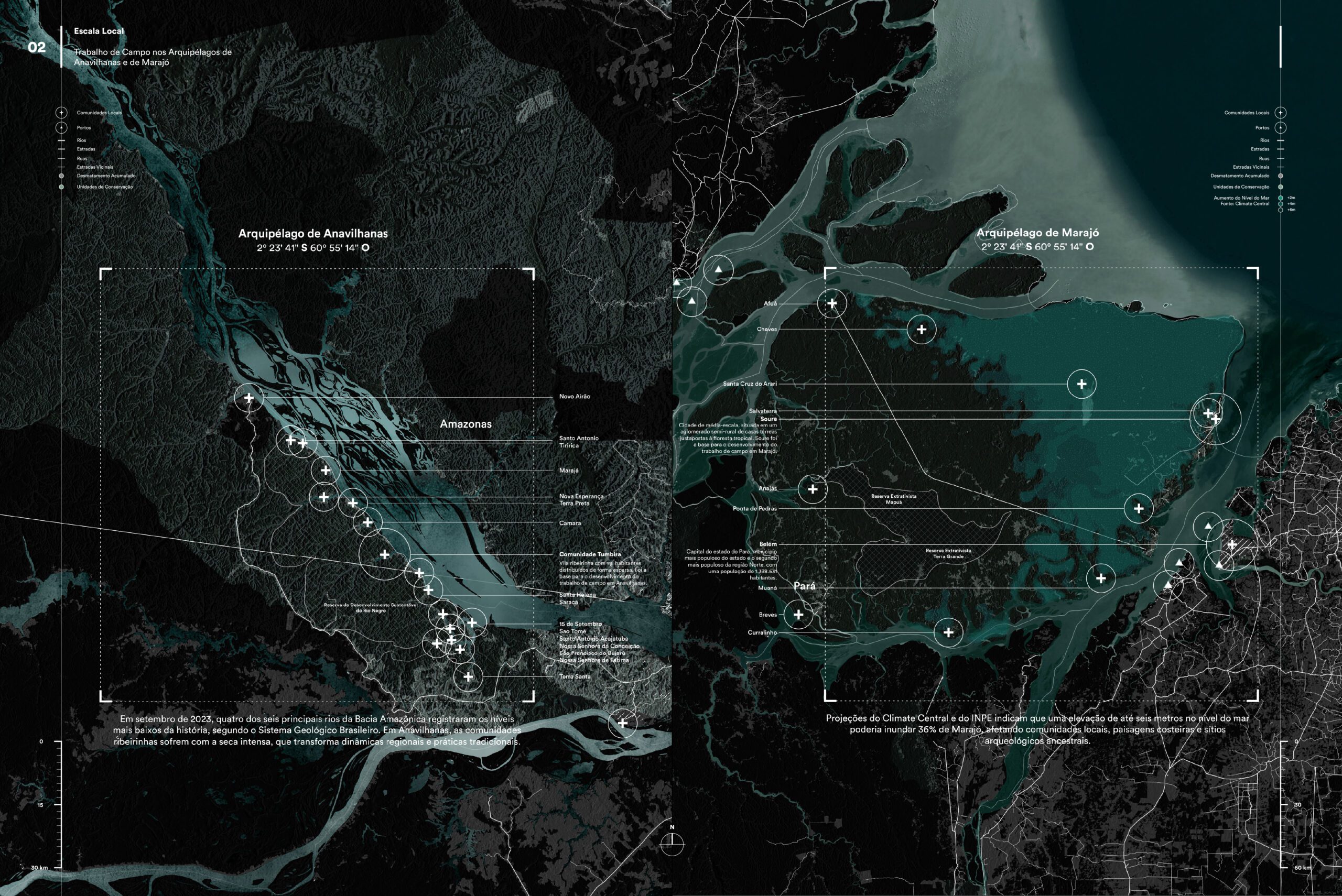Project implementation: Brazil
Project development: Brazil
The Rio Mar Archipelagos study environmental changes in the Amazon River Basin in Brazil, focusing on documenting and analyzing river archipelagos threatened with extinction due to climate change. The research seeks to understand the dynamics of these islands, examining their specific processes and conditions as fluid elements within the tropical forest. The work organizes a graphic narrative divided into three scales of analysis, recording their transformations from the regional to the local level, based on two extreme case studies. These studies highlight the complex relationship between human settlements and the landscapes of the Amazon River, which are essential sources of food, transportation, and subsistence.
The first approach proposes a "territorial scale" analysis, locating the archipelagos within the Amazonian landscape as a whole through maps, reports, and news reports. The second offers a "local scale" analysis, addressing two case studies: the Anavilhanas Archipelago, threatened by drought, and the Marajó Archipelago, at risk of flooding due to rising sea levels, through approximate mapping and fieldwork. Finally, the third approach presents the "empirical scale," revealing the adaptations developed by local communities and documenting the physical signs of climate change through analytical drawings, images, and interviews.
The result is an atlas of transformation, creating visual records and representations that highlight the interdependence between communities and local landscapes—and how their sociopolitical dimensions will be affected by climate change. In this way, these scenarios introduce a reflection on the urgency of conserving and adapting social structures rooted in these territories, bringing to light notions of climate justice, preservation, and ecological transition, and understanding these remaining elements in the landscape as vestiges of a new extreme socioclimatic condition.
This work was made possible through funding from a Penny White Research Fund fellowship from the Department of Landscape Architecture at the Harvard Graduate School of Design.




